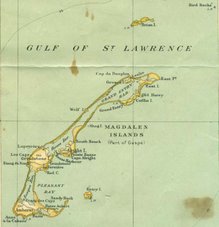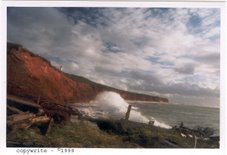The Economic Viability of Canada's East Coast Lobster Fishery
On Friday the 13th, 2009, the Honourable Gail Shea, Minister of Fisheries and Oceans, today issued the following statement:
"Today, I met with my provincial counterparts from New Brunswick, Nova Scotia and Prince Edward Island and a number of industry representatives from the Maritimes to discuss the serious challenges faced by the lobster fishery, as well as opportunities to ensure the continued viability of this valuable contributor to the Canadian economy.
There’s no question that current markets for lobster are challenging. Every lobster fishing group and association has expressed this concern. Today’s meeting identified several options for improving the situation, including finding ways to manage supply. I fully support efforts by industry and my provincial counterparts to improve market access for lobster, and I am optimistic that, working together, we will deliver concrete results. All of the participants in today's meeting recognize the need for immediate action to secure Canadian lobster in the global marketplace. Officials at both levels of government are working with industry on a range of marketing activities targeted at increasing the profile of Canadian lobster in wholesale, retail and food service markets.
The Government of Canada is providing support to industry sectors that are feeling the impacts of the global economic crisis. Our Economic Action Plan will help resource-dependent communities through initiatives such as the two-year, $1-billion Community Adjustment Fund, which can help by supporting economic diversification in communities affected by the declining global demand for seafood. We have also acted to improve access to credit for fishing enterprises, and to provide tax relief for small businesses.
It’s also clear that we must also look beyond short-term fluctuations in landings and market conditions to long-term conservation of lobster resources. If we don’t manage our fisheries in a sustainable manner, we will put the economic benefits we derive from them at risk. During recent consultations with lobster harvesters and fishing organizations, including a meeting in Moncton on February 11, most groups highlighted the need for a rationalization program as well as additional conservation measures. We will continue to work with the industry to provide flexible tools to reduce their operating costs and pressures on lobster stocks."
A number of years back, the DFO implemented a number of conservation methods here for the islands, for conserving the long-term viability of the lobster stocks and thus creating a sustainable industry. The lobster stock around the Magdalen Islands seem to be in good shape as far as numbers and weight are concerned.
However, the economic slowdown is definitely a concern for the fishermen here. Many of the licences have been bought by younger fishermen for hundreds of thousands of dollars. The older fishermen are retiring at a younger age because of the ability to get such a high price for their paid for outfits. That leaves many younger fishermen, not all but definately many, heavily in debt, usually because when they buy their new fishing business, they also tend to buy a new truck and perhaps a car to save on gas, a new home morgaged to the hilt, a new larger boat with an engine to make the boat move at incredible speeds and some even buy new fifth wheels to vacation in.
It must be scary for these fisheren, when the price of lobster go from $7.00/lb in 2007 to less the $5.00/lb, as it did last year. They say that the price will not be rising much any too soon and those younger fisheren are really going to have to scour the bottom to pay for their debts.
















No comments:
Post a Comment